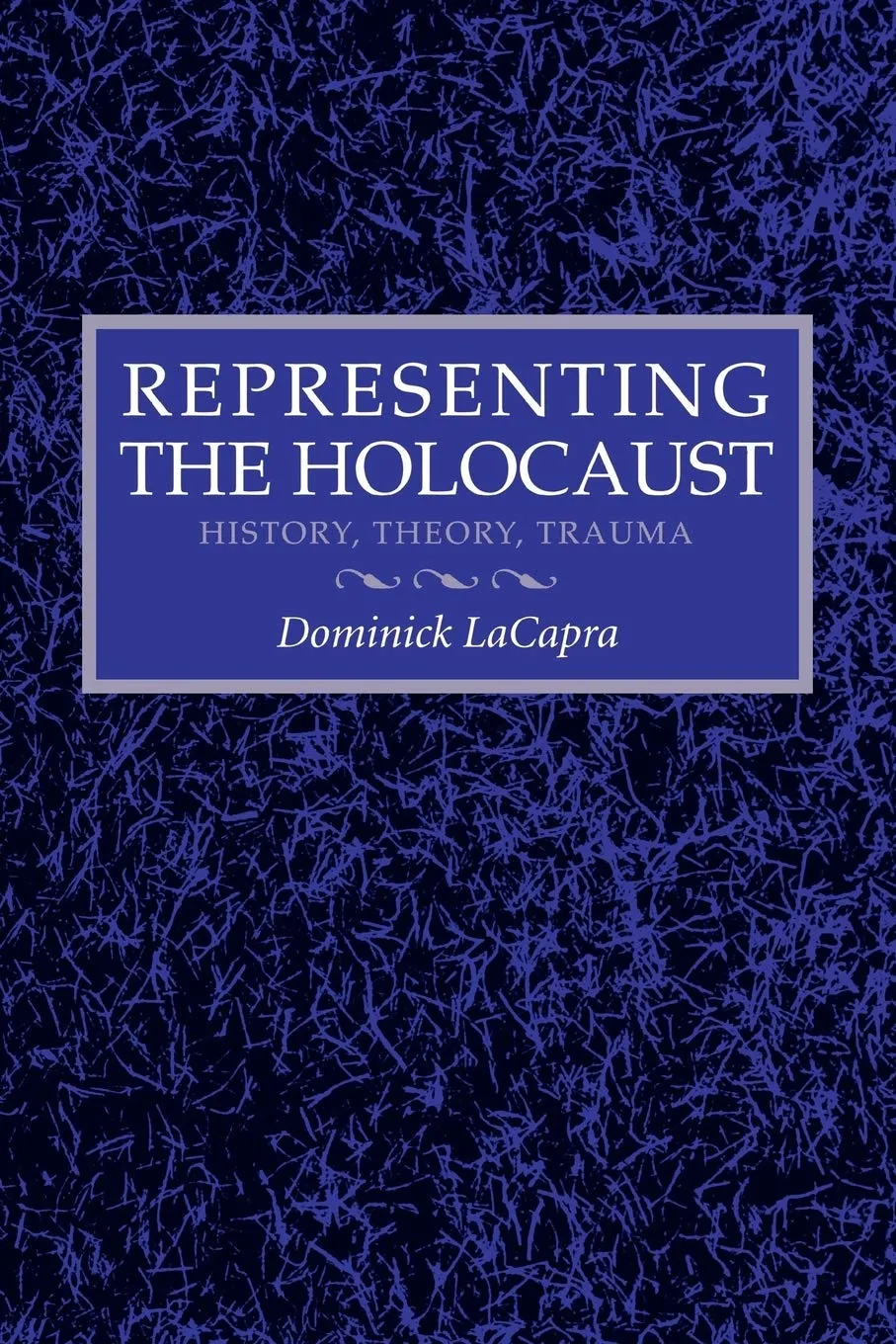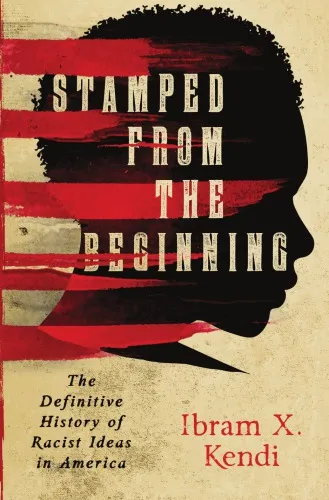Representing the Holocaust: History, Theory, Trauma
4.0
بر اساس نظر کاربران

شما میتونید سوالاتتون در باره کتاب رو از هوش مصنوعیش بعد از ورود بپرسید
هر دانلود یا پرسش از هوش مصنوعی 2 امتیاز لازم دارد، برای بدست آوردن امتیاز رایگان، به صفحه ی راهنمای امتیازات سر بزنید و یک سری کار ارزشمند انجام بدینکتاب های مرتبط:
مقدمه کتاب 'Representing the Holocaust: History, Theory, Trauma'
کتاب 'Representing the Holocaust: History, Theory, Trauma' نوشته Dominick LaCapra به دنبال بررسی عمیقترین جنبههای تاریخ، نظریه و آسیبهای روانی مرتبط با دوران هولوکاست است. در این کتاب، لاکاپرا ابعاد پیچیده و دلالتهای مختلف درک و نمایش هولوکاست را مورد بحث قرار میدهد. او با به کار گیری نظریههای مختلف و تحلیلهای تاریخی، چالشی برای مفهومسازی گذشتهای چنین وحشتناک ایجاد میکند.
خلاصهای دقیق از کتاب
این کتاب به تحلیل دقیق و عمیق مفهوم هولوکاست و نحوهی نمایش آن در تاریخ و فرهنگ میپردازد. لاکاپرا در این اثر خود با بهرهگیری از رویکردهای میانرشتهای، شامل تاریخ، نظریه اجتماعی و مطالعات فرهنگی، به بررسی نحوهای که هولوکاست به یاد آورده و تفسیر میشود، میپردازد. او به چالشهای مربوط به نمایندگی کردن رنج و تجربیات قربانیان هولوکاست میپردازد و سوالاتی پیرامون مسئولیت مورخان و روشنفکران در بازنمایی این واقعه مهم تاریخی مطرح میکند.
نکات کلیدی
- نقش تاریخ در بازنمایی رویدادهای تراژیک و نحوه انطباق نظریه تاریخی با تجارب انسانی.
- تأکید بر اهمیت تفکیک بین Empathy و Identification، و تأکید بر Ethical Responsibility در بازنمایی هولوکاست.
- تحلیل چالشهای مربوط به Trauma و اثرات روانشناختی آن بر بازماندگان و نسلهای بعدی.
جملات معروف از کتاب
"The Holocaust poses unique challenges to our understanding of history and the ways we think about the past."
"To represent the Holocaust adequately demands an articulation of its historical specificity."
اهمیت این کتاب
این کتاب یکی از آثار اساسی برای تمامی کسانی است که به دنبال فهم عمیقتری از هولوکاست به عنوان یک پدیده تاریخی، فرهنگی و روانشناختی هستند. لاکاپرا با بهرهگیری از مفاهیم نظری پیشرفته و تحلیلهای تاریخی دقیق، به خوانندگان کمک میکند تا چگونگی رویارویی با روایتهای مختلف هولوکاست و فقهای موجود حول آن را بهتر درک کنند.
وجود این کتاب در کتابخانه تمام علاقهمندان به مطالعات تاریخی، به خصوص کسانی که به مطالعه و پژوهش در زمینه هولوکاست و پیامدهای آن علاقهمند هستند، ضروری است. این کتاب نه تنها از لحاظ تاریخی بلکه از منظر اخلاقی و روانشناختی نیز اهمیت دارد و به ما کمک میکند درک بهتری از پیچیدگیهای مربوط به بازنمایی رنج و Trauma حاصل از فجایع تاریخی داشته باشیم.
Introduction
Welcome to an in-depth exploration of Dominick LaCapra's transformative work, "Representing the Holocaust: History, Theory, Trauma." This book serves as a profound reflection on the representation of the Holocaust, touching on historical, theoretical, and traumatic perspectives. Through this piece, LaCapra delves into how the Holocaust is depicted, understood, and remembered, providing crucial insights into its historical and cultural implications.
Detailed Summary of the Book
Dominick LaCapra's "Representing the Holocaust: History, Theory, Trauma" is a pivotal text that engages with the intricate narratives surrounding the Holocaust. The book meticulously dissects how the Holocaust is represented in various academic and public discourse. LaCapra explores the often-complicated relationship between history and memory, emphasizing the relevance of this engagement in the face of traumatic events. He addresses the challenges in portraying the Holocaust both accurately and sensitively, highlighting the implications for historians, theorists, and survivors alike.
LaCapra's work breaks the boundaries between different academic disciplines, positioning itself within a landscape where history, literary theory, and cultural studies intersect. By doing so, it provides a nuanced understanding of how trauma influences both personal and collective memory. Through detailed analysis, LaCapra scrutinizes key concepts such as trauma and testimony, the ethics of historical representation, and the role of empathy in Holocaust narratives. His discourse challenges readers to reconsider commonly held perceptions, ensuring the Holocaust is not only remembered but understood in a way that respects its complex legacy.
Key Takeaways
- Interdisciplinary Approach: LaCapra combines history, cultural theory, and trauma studies, offering a comprehensive view of Holocaust representation.
- Understanding Trauma: The book illuminates how trauma affects memory and narrative, emphasizing the need for sensitive engagement with Holocaust narratives.
- Ethics of Representation: LaCapra stresses the ethical considerations in depicting traumatic histories, underscoring the importance of accuracy and respect.
- Critical Reflection: Readers are encouraged to reflect critically on their own perceptions and the broader cultural narratives of the Holocaust.
Famous Quotes from the Book
"Empathy, while being both necessary and problematic, must be cultivated with an awareness of its potentially assimilative and appropriative aspects."
"The relationship between trauma and representation is pivotal in addressing how we understand, narrate, and memory is passed down across generations."
Why This Book Matters
"Representing the Holocaust: History, Theory, Trauma" is essential reading for anyone interested in understanding the nuanced interpretations of the Holocaust. LaCapra's work is a critical resource for academics, educators, and students who wish to explore the intersections of history, memory, and trauma. Its importance lies in its ability to provoke thought and dialogue, encouraging readers to grapple with the moral and ethical dimensions of historical representation.
This book is not only pivotal in Holocaust studies but also offers significant insights for those interested in trauma studies and cultural theory. By addressing the challenges in representing such an immense tragedy, LaCapra provides invaluable guidance on how we can learn from the past and strive towards a more informed and empathic future.
دانلود رایگان مستقیم
شما میتونید سوالاتتون در باره کتاب رو از هوش مصنوعیش بعد از ورود بپرسید
دسترسی به کتابها از طریق پلتفرمهای قانونی و کتابخانههای عمومی نه تنها از حقوق نویسندگان و ناشران حمایت میکند، بلکه به پایداری فرهنگ کتابخوانی نیز کمک میرساند. پیش از دانلود، لحظهای به بررسی این گزینهها فکر کنید.
این کتاب رو در پلتفرم های دیگه ببینید
WorldCat به شما کمک میکنه تا کتاب ها رو در کتابخانه های سراسر دنیا پیدا کنید
امتیازها، نظرات تخصصی و صحبت ها درباره کتاب را در Goodreads ببینید
کتابهای کمیاب یا دست دوم را در AbeBooks پیدا کنید و بخرید
1535
بازدید4.0
امتیاز0
نظر98%
رضایتنظرات:
4.0
بر اساس 0 نظر کاربران
Questions & Answers
Ask questions about this book or help others by answering
No questions yet. Be the first to ask!






![Denial [Movie Tie-in]: Holocaust History on Trial](https://s3.refhub.ir/images/thumb/Denial__Movie_Tie-in___Holocaust_History_on_Trial_5630.webp)








